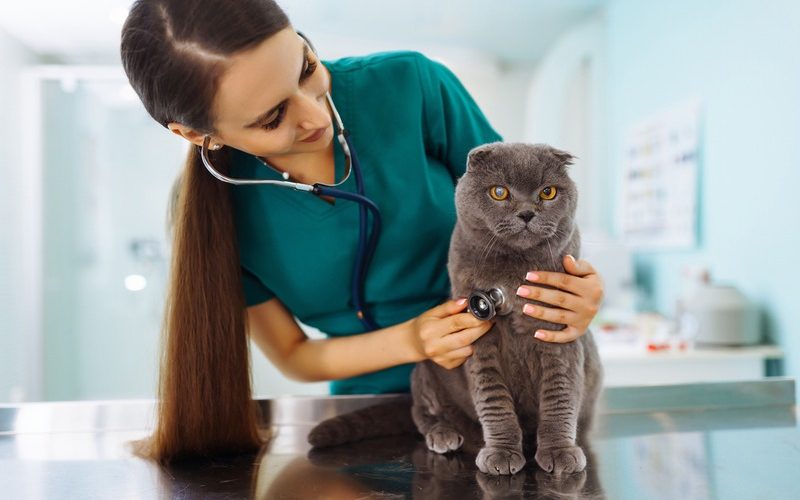If you’re a pet parent, you know that keeping your furry friend healthy is a top priority. It’s like they become a part of our family, right? Sure, giving them love and the occasional treatment is essential, but have you considered how preventive surgeries can play a critical role in their long-term health? We often wait until a problem arises before considering surgery, but why wait when we can prevent serious issues beforehand? Let’s unpack why opting for preventive pet surgery can save you and your four-legged companion from future pains and troubles.
What is Preventive Pet Surgery and What Are Its Benefits?
Preventive pet surgery includes procedures to avoid diseases or conditions that could be detrimental down the line. It sounds serious. But think of it as an investment in your pet’s life charter. The benefits? They’re significant. For starters, preemptive measures, like surgeries, can prevent life-threatening conditions, save money on potential emergency treatments, and ultimately, afford your pet a higher quality of life. Isn’t that what we all want for our furry pals?
Typical Preventive Surgeries for Pets
Here are a few preventive operations we can consider for our animal companions:
-
Spaying and Neutering: These surgeries come with a whole host of benefits. Besides preventing unwanted litter, they can reduce the risks of certain types of cancer and curtail behavioral issues like roaming and aggression.
-
Dental Prophylaxis: Dental health in pets is more important than some realize. Frequent cleanings and tooth extractions help prevent periodontal diseases which can affect their overall health.
-
Gastropexy: This surgery prevents gastric dilatation-volvulus, more commonly known as bloat, which is often fatal and affects large, deep-chested breeds.
Professional veterinary services for pets play a pivotal role, ensuring that the benefits of preventive surgeries come to fruition. Good vets will also offer post-surgery care instructions and support, which is part of the package we must look out for.
Embracing Early Detection
Regular vet check-ups are not only for when our pets seem under the weather. They also help in early disease detection, which is where the concept of preventive surgeries shines. When we catch an issue early on, the surgical intervention can nip the problem in the bud, potentially saving our pet’s life and us from emotional distress and financial strain.
One prime example is tumor removals when they’re still benign. It might seem drastic, but it’s a clear-cut example of “better safe than sorry.” Also, removing foreign objects that pets might’ve ingested accidentally could prevent severe gastrointestinal damage. Early detection and preventive procedures create a safety buffer around our pets’ health.
When Prevention is the Key
Sometimes, we can’t see the looming troubles, but here’s the thing: taking proactive steps can prevent things from going south. In cases like hip dysplasia—a condition prevalent in certain dog breeds—preventive surgery can remedy the issue before it becomes painful and debilitating. So, the idea is to intercept health problems before they become full-blown, affecting our pet’s quality of life.
Embracing Preventive Surgeries
We have to be proactive and informed. That means researching, consulting with vets, and weighing the pros and cons of preventive surgeries. Thinking long-term and focusing on what will extend and improve our furry friends’ lives is essential. And remember, the emotional and financial toll that comes with managing a pet’s illness can be significant. Preventive measures can minimize these challenges substantially.
Cost-Effectiveness of Preventive Surgery
Let’s talk about the financial aspect for a moment. Preventive surgeries can be more cost-effective than treating a disease after it has emerged. It’s similar to how we maintain our cars to avoid costly breakdowns. By investing a little now in preventive care, we can avoid the steep medical bills that come with emergency services or chronic disease management. And who doesn’t appreciate some savings?
For instance, the cost of spaying and neutering surgeries in Nashville tends to be lower compared to the expense of caring for a pet with reproductive system issues or cancer. As pet parents, it’s wise to consider these financial implications.
A Look at Post-Surgery Benefits
After preventive surgery, many pets can enjoy a surge in their overall well-being. They can engage in play and exercise more freely, sleep better, and generally show an enhancement in mood. This isn’t just good for them; it’s also great for us to witness. Our bond with our pets grows more potent when they’re happy and healthy.
Choosing the Right Veterinary Services
The success of preventive surgeries heavily depends on the expertise of the veterinarian. Selecting a vet or clinic known for reputable pet surgical solutions is crucial. Doing our homework – reading reviews, getting referrals, and meeting potential vets should give us peace of mind that we’re making the best choice for our pet’s care.
Final Thoughts
Preventive pet surgery involves early actions to maintain our pets’ health and prevent worse issues. It’s a big decision with benefits like avoiding severe illnesses and saving costs. Procedures like spaying/neutering and dental care are essential. Working with a vet for early disease detection helps keep pets healthy. These surgeries are investments in our pets’ long lives and happiness. Our responsibility as pet owners is to make informed decisions for their well-being, as they depend on us to look after them.

